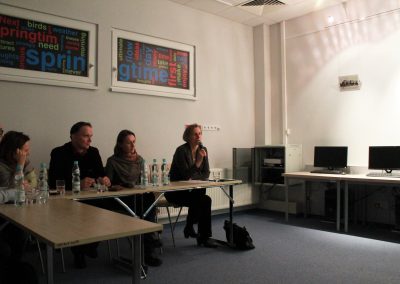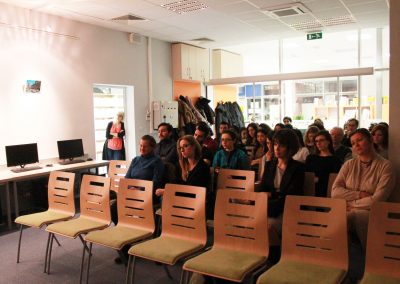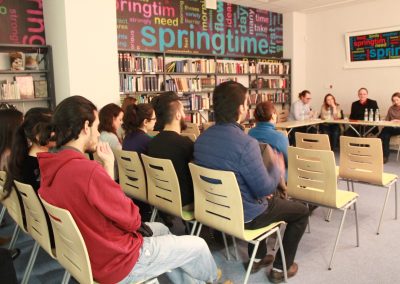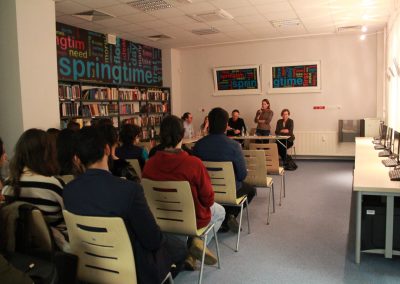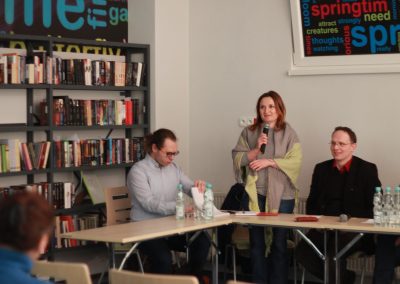On Wednesday we met in the Municipal Library Fil. 4 to participate in the debate entitled Gender ideology(ies): Man and woman – different by nature, inequal by society? We tried to find the answer to this question with our four guests: sociologists Borys Cymbrowski and Anna Czerner, philologist Katarzyna Molek-Kozakowska and biologist Elżbieta Pogoda.
We were aware that for most people the term gender is unfamiliar or even unfriendly, especially when someone is not a philologist or a social researcher, so we started with the basic questions: what gender is, how it exists in our respective fields of studies, and if there exists gender ideology. We can say that gender in general is about social consequences of being men, women or the others, because in the opinion of Elżbieta Pogoda even from a biological point of view there are more than only two sexes. And there is no evidence that one sex has an advantage over another.
In Polish media we encounter some false beliefs about the meaning of the word “gender”. But as Borys Cymbrowski mentioned it is a problem of confusion of nature with culture, because in the Polish language we have only one word (płeć) for gender and for sex. So some commentators confuse biological meaning with the cultural one. They accuse gender scholars of promoting a dangerous ideology which tries to convince people to choose their sex. As Anna Czerner said, the truth is that in the social sciences gender was a neutral category to analyse the relations between people in society, but unfortunately some institutions and politicians took one of the least popular topics in gender studies and used it as a basis to create and apply gender ideology as a political tool.
After that we focused mostly on language aspects within gender issues. Katarzyna Molek-Kozakowska indicated that for her it was easier to introduce herself in English than in Polish, because in Polish most names of academic professions have only a masculine gender, or even if it has a female gender, masculine forms sound more serious and more prestigious. But language is not a constant phenomenon – it is changing all the time. Twenty years ago we considered some female forms of words as strange, but today we take them for granted. We concluded that it is important to include more women-related forms to language, and it is one of the main catalysts of social changes in the public sphere.
We are really glad we could discuss it with you and with the citizens of Opole. We would like to thank you all for your presence and participation, and we hope to see you soon during another discussion. The aim of the whole debate was to clarify a little the problem of gender, but two hours is a short time when you are discussing such an important and complicated topic – so we treat this meeting only as a start. The debate is still open.
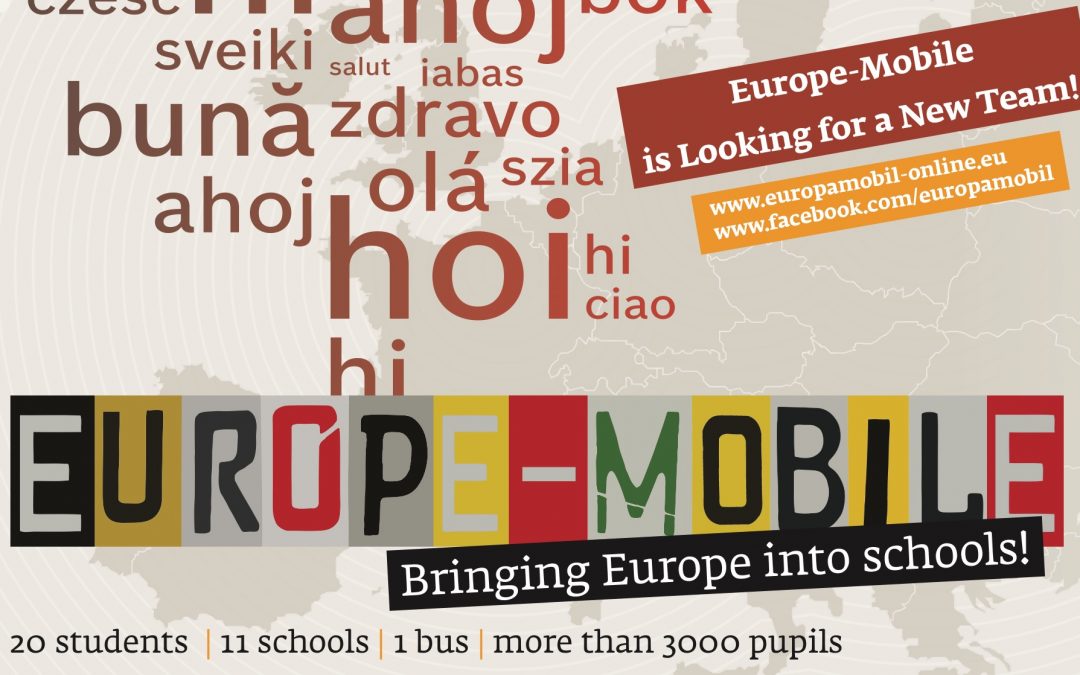
Europe-Mobile (deadline for applications June 14, 2017)
Dear students, If you still don't have plans for September, we encourage you to submit your application for participation in the international youth project "Europe-Mobile". You have a chance to become one of 20 motivated students from various countries of the EU, who...
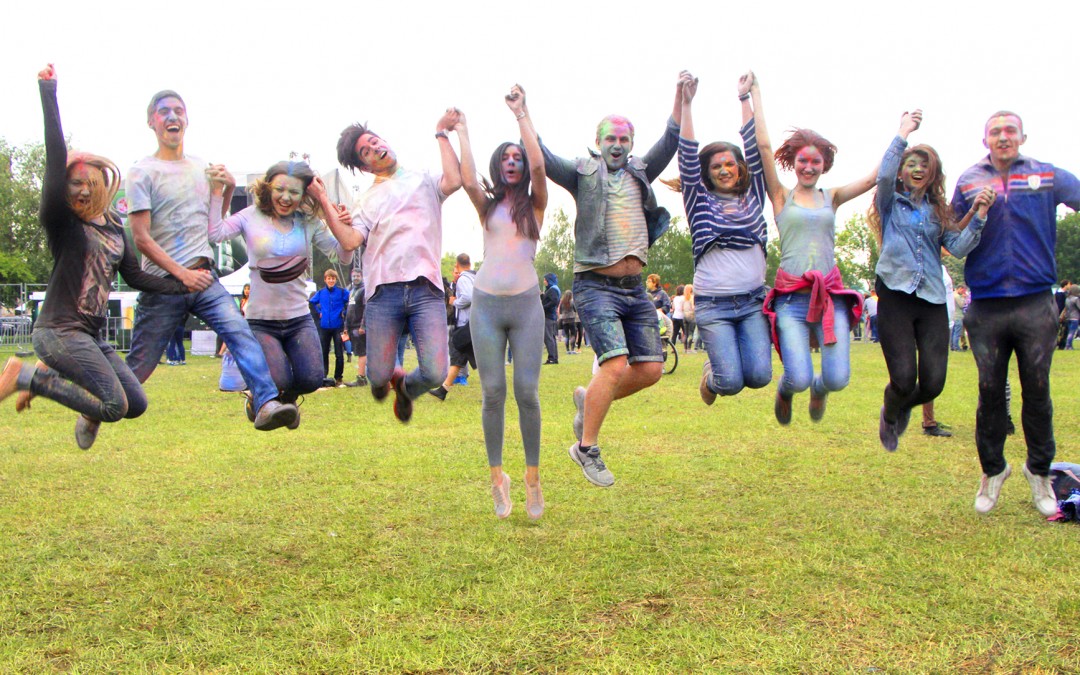
Piastonalia!
Dear Students, Attention please! There are no classes on Monday (after 12 pm) until Wednesday. It’s time to start the Piastonalia, series of events which connect all students in Opole. What kind of attractions await us in the coming week? Multiply numbers of concerts,...
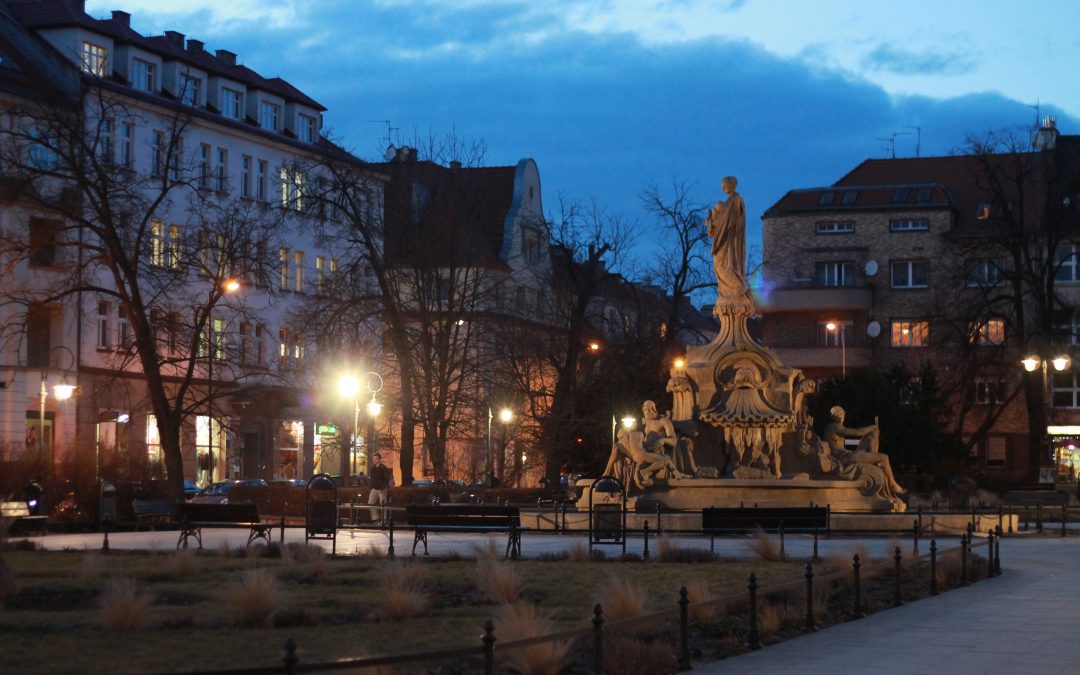
Winter Semester 2017/2018 Variable Course Registration
Dear students, This Monday, the 8th of May, at 8 a.m., a registration for the winter semester variable course will open. You might remember the procedure, although to refresh it in your memory go here. As usual, we advise you to go to USOSweb and look through the...
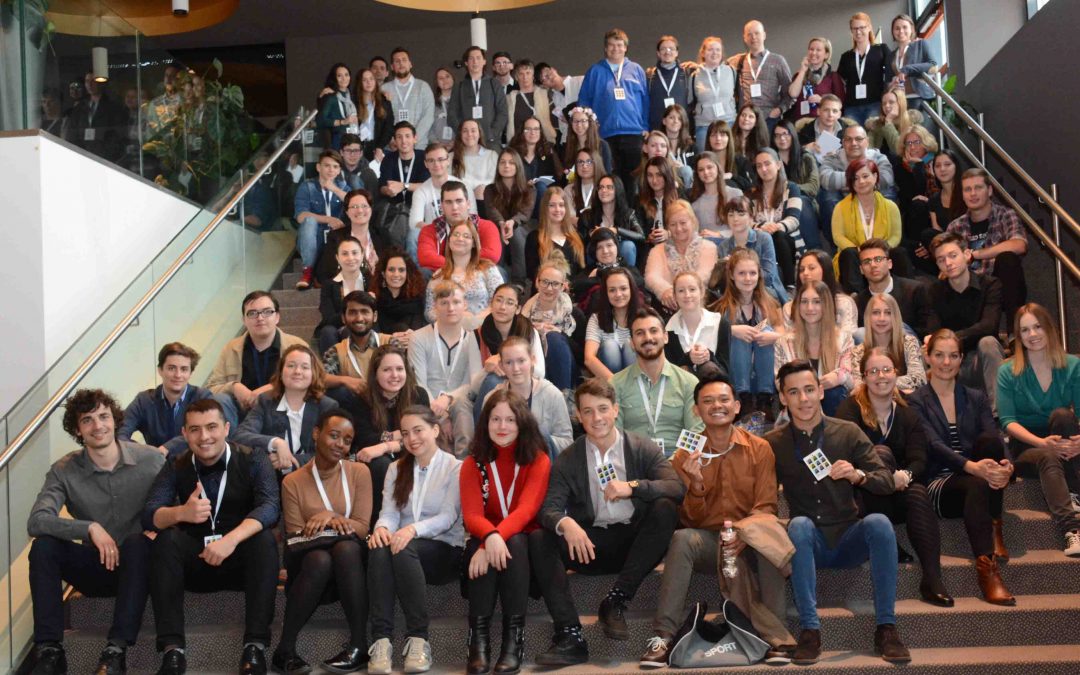
Quo Vadis, Iuvenis?
Some of our students never miss a chance to develop their professional skills, broaden their horizons, travel and meet new people, participating in the conferences. Arif Siswanto, our Intercultural Communication MA student, has kindly agreed to share his experience...
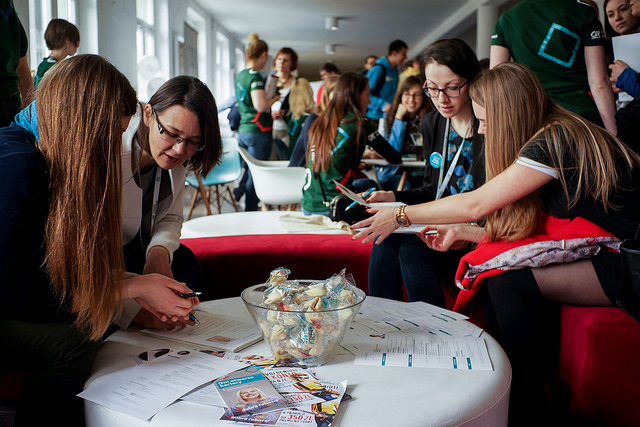
VIII Giełda Pracy University of Opole
On May 10, 2017 we invite you all to participate in VIII Giełda Pracy of the University of Opole organised by Academicki Centrum Karier UO. This is the event held annually to make it easier for the students and graduates to find out about job offers, internships and...
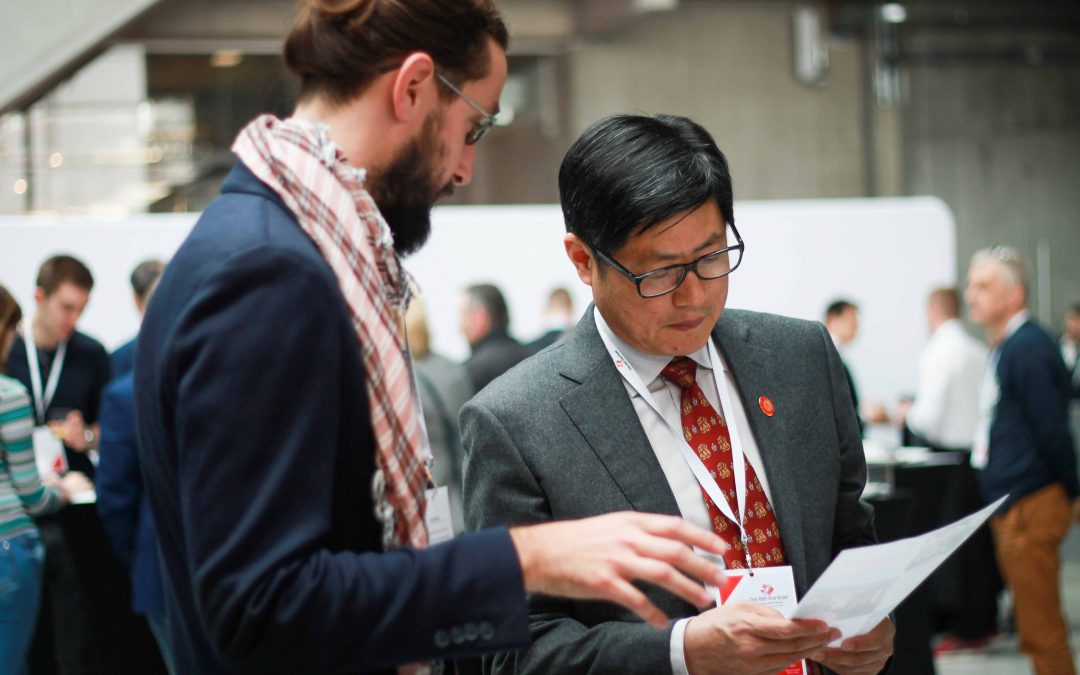
Relacje z Chinami / Relations with China
One Belt One Road - wiele szans, wiele możliwości - pod takim hasłem we wtorek 25 kwietnia odbyła się w Opolu konferencja polsko-chińska. Jej głównym organizatorem był Wojewoda Opolski a współorganizatorami Urząd Miasta Opola oraz Politechnika Opolska. Uniwersytet...
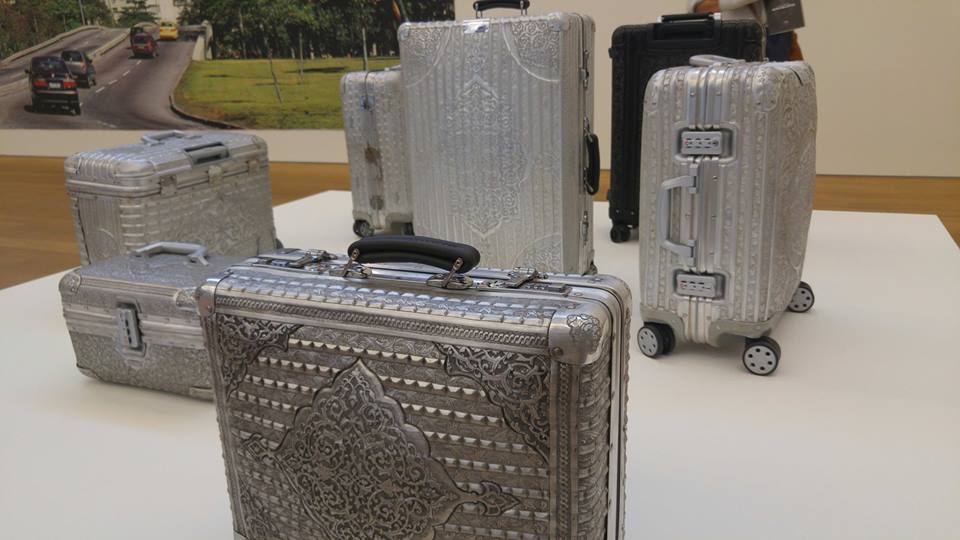
Holy Saturday Trip around Opole
It is Easter time for Roman Catholics and other Christian denominations. Starting as early as last Thursday, the religious and traditional celebrations begun. The main holiday is on Sunday, when it is believed that Jesus Christ resurrected. Some Poles celebrate it...
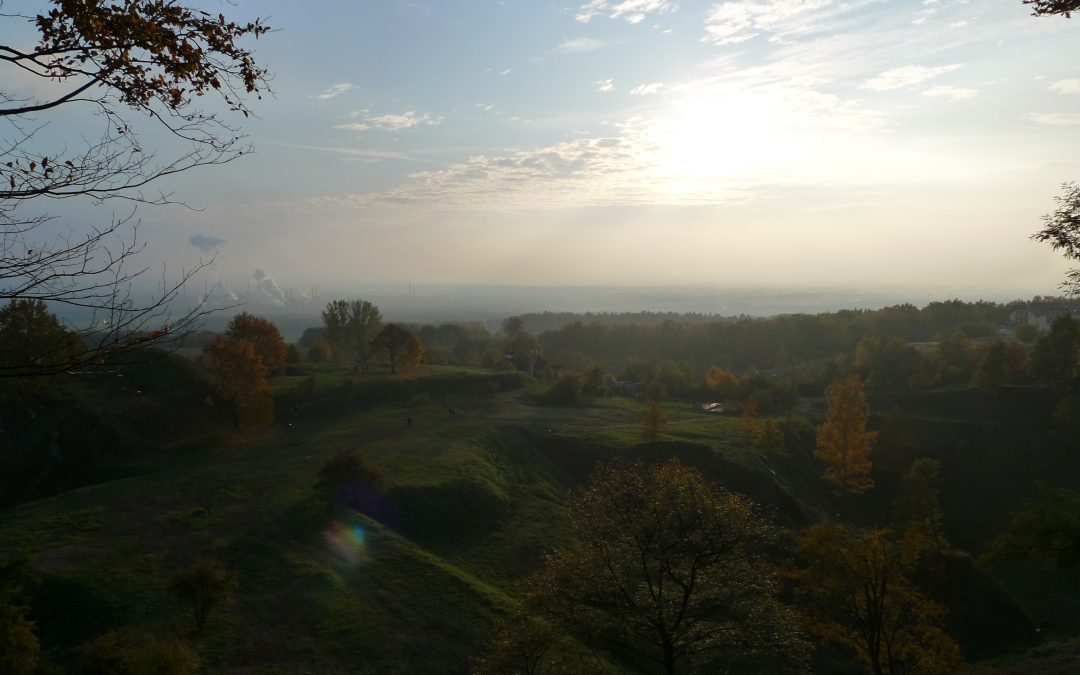
A Trip to Zdzieszowice
Dear students, The group of the Art Projects in Public Space course has decided to visit the nearby town of Zdzieszowice together and has planned the trip for this Saturday. We are meeting at 8.45 a.m. at the main train station in Opole. The plan is to take a walk...
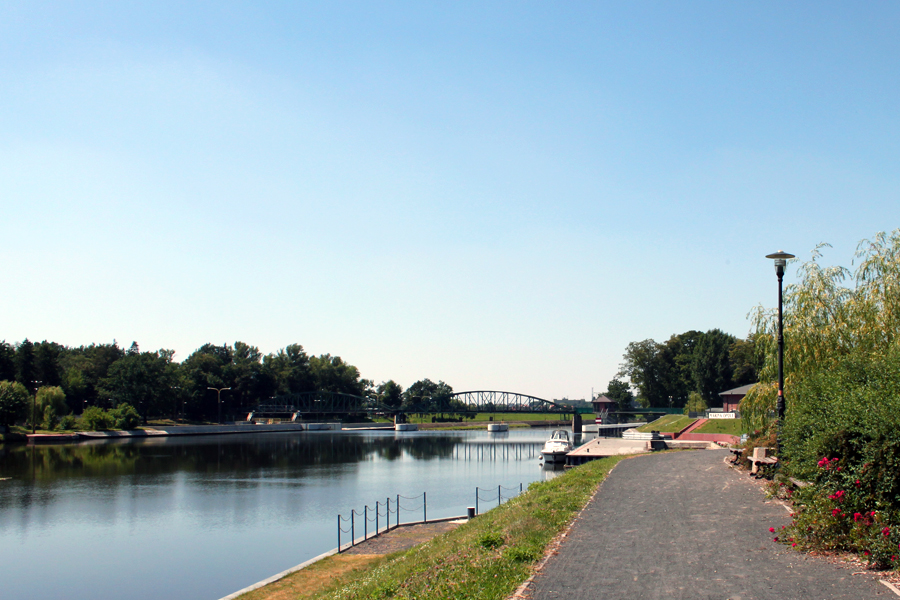
Coming Soon: Easter Break
Dear students, Soon in Poland we will be observing Easter. Apart from being a Christian celebration, the family festivity is a tradition in Poland and a large part of it has little to do with religion. Along with Christmas, it's one of the two most important holidays...
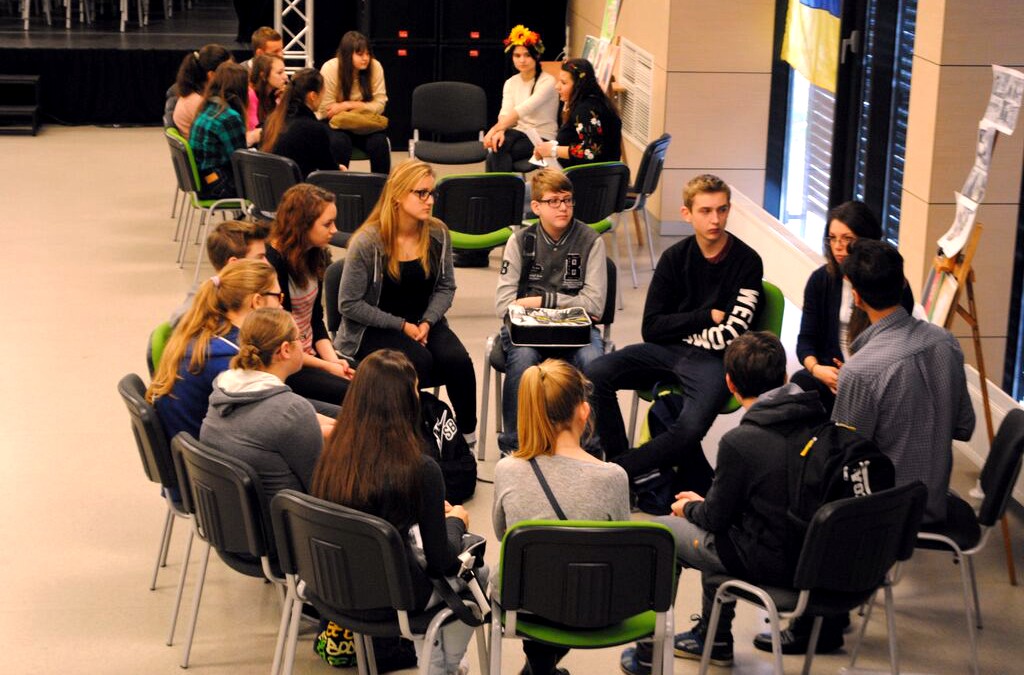
Practical and Academic English Summer School at the University of Opole 2017
Dear students, This July the University of Opole is organizing an English Language Summer School. The intensive 3 week course is meant not only to develop knowledge of the grammar and vocabulary of the English language, but also to incite the students to use spoken...
